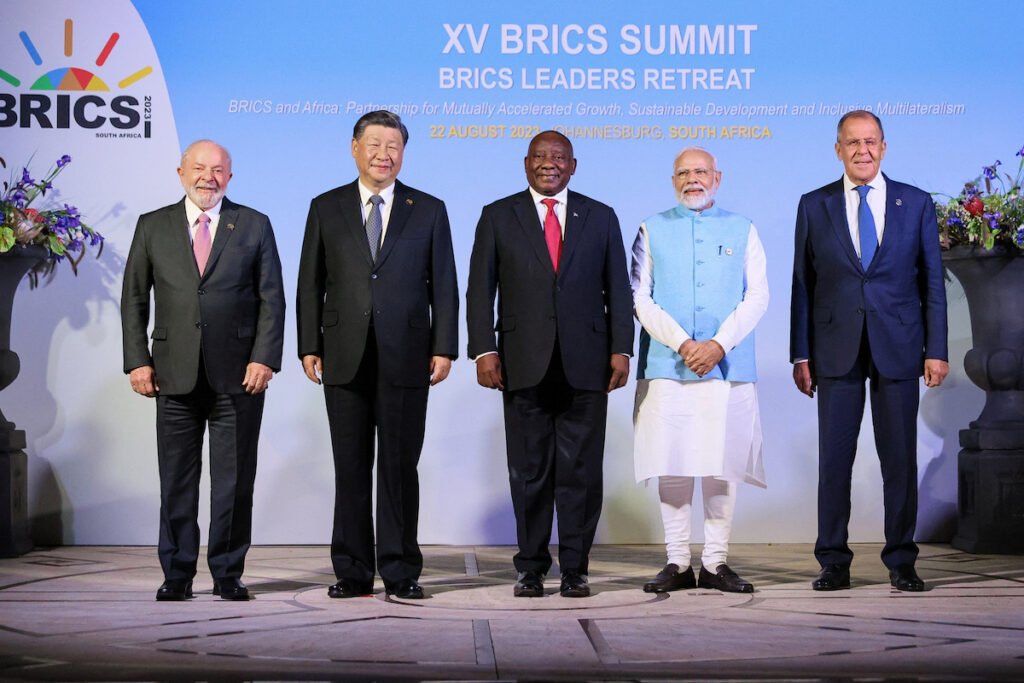Saudi Arabia, Iran, Egypt, the United Arab Emirates, Ethiopia and Argentina have all been invited to join the BRICS group of major developing countries, as the bloc seen as an alternative to the Western world order grows its influence.
BRICS currently comprises Brazil, Russia, India, China and South Africa, which is hosting the group’s summit in Johannesburg this week. The group already accounts for around 40% of the global population and a quarter of the world’s gross domestic product.
South African President Cyril Ramaphosa announced the new members on Thursday, the final day of the summit.
“BRICS is a diverse group of nations. It is an equal partnership of countries that have differing views but a shared vision for a better world,” he posted on Twitter, a social media platform now known as X.
“As the five BRICS members, we have reached agreement on the guiding principles, standards, criteria and procedures of the #BRICS expansion process,” Ramaphosa added, before announcing the new countries.
Chinese President Xi Jinping called the expansion “historic”.
“The expansion is also a new starting point for BRICS cooperation. It will bring new vigour to the BRICS cooperation mechanism and further strengthen the force for world peace and development,” he added.
Indian Prime Minister Narendra Modi wrote on X: “India has always supported the expansion of BRICS. India has always believed that adding new members will strengthen BRICS as an organisation.”
The new members will officially join the group on January 1, 2024.
The Shanghai-headquartered New Development Bank, or so-called “BRICS bank”, had already admitted the UAE and Egypt as shareholders. Saudi Arabia and Algeria have also expressed interest in being shareholders.
The expansion could make it easier for other countries to join the group, and more than 40 have expressed an interest in joining BRICS, according to South African officials, and 22 have formally applied to join the bloc.
Many countries want to BRICS because they believe being part of the alliance would give them benefits such as development finance and increased investment, as well as potential security guarantees.
Ramaphosa and Brazilian President Luiz Inacio Lula da Silva signalled they were open to admitting new members to the group in the future.
UAE President Mohammed bin Zayed appreciated the invitation of his country to join. “We look forward to a continued commitment of cooperation for the prosperity, dignity and benefit of all nations and people around the world,” he wrote on X.
The BRICS summit began on Tuesday, with political leaders from four out of five of the member countries present. Russian President Vladimir Putin did not attend due to an arrest warrant from the International Criminal Court for his role in the Ukraine war. Foreign minister Sergei Lavrov attended the summit instead.
Since BRICS was formed in 2010, the economic performance of the members has been mixed: most of the consistent growth has been due to China and India, as in recent years Russia has been hit by sanctions and both Brazil and South Africa have seen political instability that has hampered their economies.
But as the rifts between China, Russia and the United States deepen, the bloc has been increasingly looking to act as a counterweight to the West.
Source : Al-Monitor


